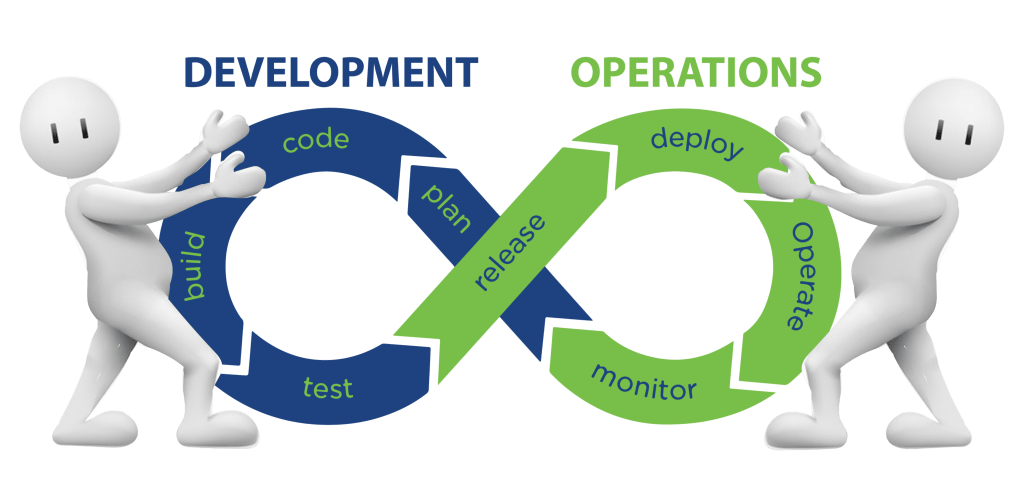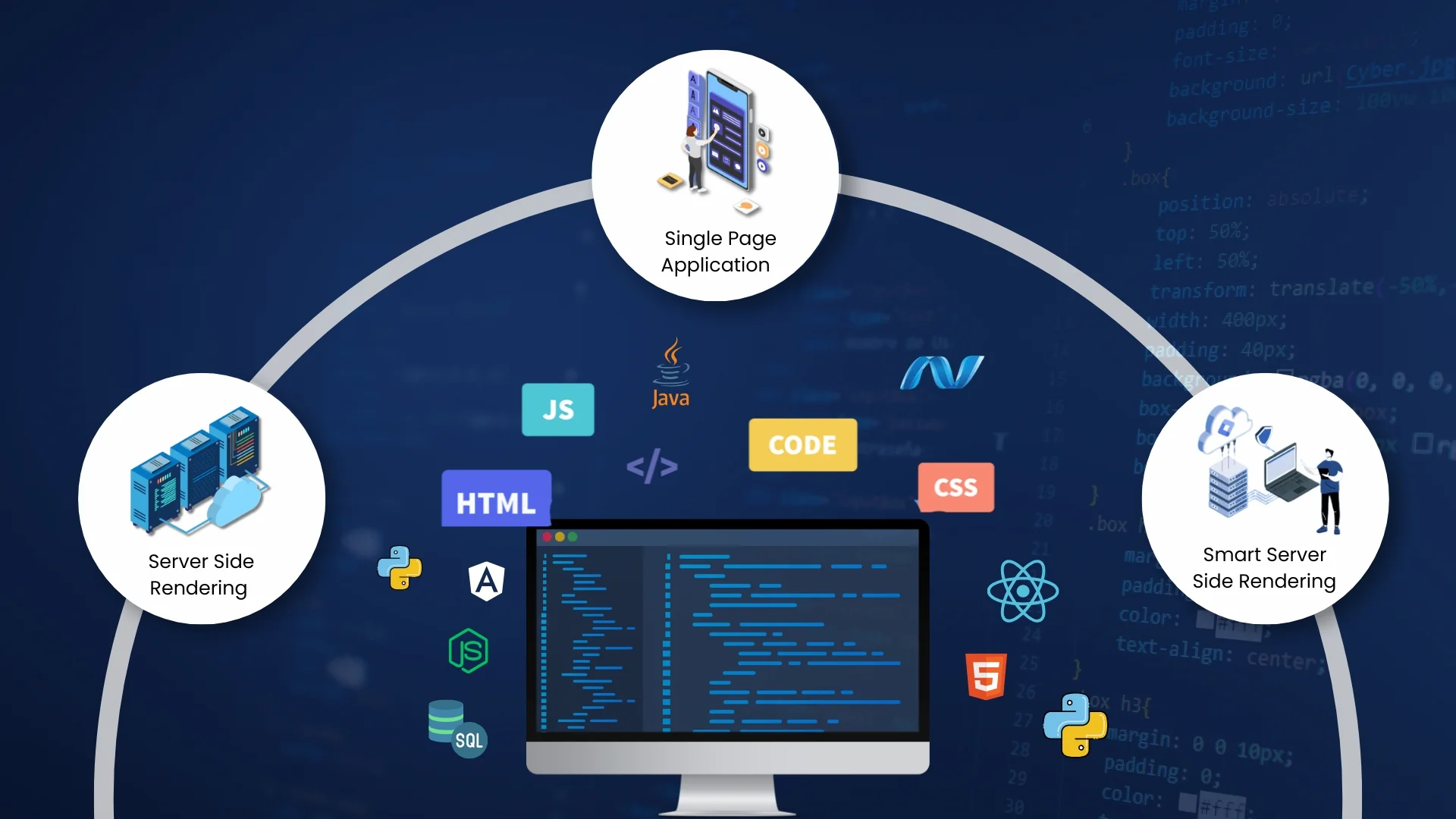Introduction
In the past, the waterfall approach was the traditional approach for software development. The basic process involved writing the code, testing it, then debugging and later deployment, where each stage must be completed before the start of the next stage.
This approach created silos where every department/team has something different to focus on. This method suffers from various shortcomings, such as difficulty in accommodating change requests, no feedback path, overlapping phases, and caused delay in delivering IT services to its users.
This drawback of waterfall approach led to the evolution of agile methodology. The agile approach focuses more on continuously aligning development with customer needs and trends. Agile methodology focuses on getting smaller teams to collaborate with each other.
Despite close collaborations, Agile still lacked on a few fronts; collaboration with larger teams was ineffective, rolling out new updates, features, bug fixes were slow and caused delays in the delivery process.
IT teams faced a dire need to minimize the downtime and delay in delivering IT solutions. This changed with the emergence of DevOps, DevSecOps, and then further, with SRE as a natural solution for this challenge.
Although many enterprises are eager to implement some of these methodologies, there is often some confusion between them. What does each methodology incorporate? Where do they cross paths? Should you pick one over the other?
Before moving further and looking at the difference between DevOps, DevSecOp, and SRE methodology, let us have a quick overview of what each of these methodologies offers.
This blog will break down a brief introduction of DevOps, DevSecOps, and SRE methodology, plus explain how these methodologies differ from each other.
Table of Contents
What is DevOps?

DevOps is an abbreviation of two words, “development” and “operations,” representing a new methodology that aims at establishing closer collaboration between development teams (Dev) and the IT operations team (Ops) that worked in their separate silos throughout the entire software development lifecycle.
DevOps methodology aims to develop and deliver software products at a faster rate by using agile process and automation.
DevOps is more than processes and automation—it’s a mindset, culture, and philosophy to align teams on a common set of objectives. DevOps empowers businesses to push their product to the market at a higher velocity and respond to the market at a faster rate.
What is DevSecOps?

In the past, the development cycles lasted for months or even years, and the release of new versions or software updates of their applications were released just once or twice a year. This enabled enough time for quality assurance and security testing teams to carry out security measures.
Effective implementation of DevOps has ensured frequent development cycles, sometimes weeks or days, but with outdated security practices or separate security team cannot keep up with the speeds of DevOps initiatives. This drawback has led to the evolution of DevSecOps methodology, where development, security, and operations teams in the collaborative framework share the end-to-end responsibility in the entire software development lifecycle.
DevSecOps methodology automates the integration of security at every phase of the software development lifecycle, from initial design through development, integration, testing, deployment, and software delivery. DevSecOps integration addresses infrastructure security and application development as a shared responsibility of development, security, and IT operations teams to fully integrate security testing into the continuous integration (CI) and continuous delivery (CD) pipelines, enabling the development of secure software the accelerated speeds
What is SRE?

Site Reliability Engineering (SRE) is a practice popularized by google over the past few years. Google’s Ben Treynor describes site reliability as “what happens when a software engineer is tasked with what used to be called operations.” The primary focus of SRE is system Reliability, and once the system is reliable enough, it shifts towards its efforts towards adding new updates, features, and products.
SRE approach identifies weaknesses in the system, testing production environments, and solving them before they become major incidents. SRE methodology is a software engineering approach to IT operations where software is used as the tool to solve problems, manage systems and automate operations tasks. SRE helps in constantly balancing between releasing new features and the reliability of the system.
In the SRE model, standardization and automation are the two most essential components. With the SRE model, site reliability engineers should constantly be on the lookout for ways to enhance and automate operations tasks.
DevOps vs. DevSecOps vs. SRE

Role of the developer
DevOps approach combines the skillsets of developers and IT operation engineers across software development and IT operations.
Whereas in DevSecOps, the developer must involve themselves with operation and security teams in the early stages of design and development processes to facilitate secure applications.
In the case of SRE, developers are tasked to solve the problems of IT operations in the entire development cycle of the software.
SRE is more operationally driven, and the development team drives the process rather than the operational team. I.e., the development team has more control over the maintenance and monitoring job.
Communication & collaboration
The trio methodologies are all about teamwork and relationship. DevOps, DevSecOps, and SRE all three work to bridge the gap between development and operation teams to deliver faster services.
Accepting failures
DevOps and DevSecOps follow a blameless culture approach where every mistake is a learning opportunity. Instead of making the system fault-proof, DevOps culture focuses on a fault-tolerant approach. DevOps and DevSecOps basically deal with the pre-failure situation.
On the other hand, SRE methodology practices a blameless postmortem approach wherein every time failure occurs, the blameless postmortem approach identifies what caused the fault and finds ways to avoid it in the future. SRE basically deals with the post-failure situation.
Culture vs. implementation
DevOps and DevSecOps tend to focus on cultural goals than the implementation process. These two methodologies follow no specific tool or procedure.
On the other hand, SRE also doesn’t have any specific script to follow in the SRE implementation process, but it offers a rigid prescription to solve the problems and which tools to use.
Organizational structure
In most cases, there is no change in the role of the existing developer and IT operations department or roles. Companies may hire a few DevOps engineers to guide the existing team, but they don’t need to replace them. On the other hand, the SRE role requires companies to replace their IT operation team to some extent.
Implement gradual changes
All the trio methodologies foster continuous improvement through small yet frequent changes.
DevOps and DevSecOps approach handle new releases, new updates gradually since every new change needs to be tested out before it is pushed to the end-user so that the end-user does not face any downtime.
In contrast, SRE wants quick and regular changes but will implement these changes keeping in mind the cost of failure.
Key metrics measurement
DevOps culture nurtures the team to deliver superior quality software at a quick pace. And DevOps metrics focus on the same – how quickly and often the deployments are happening and how many go wrong.
In other words, DevOps focuses on Lead time, Deployment frequency, Mean time to restore (MTTR), Change failure rate, Defect escape rate, and Customer Ticket Volume.
In the case of DevSecOps, along with the key metrics of DevOps culture, some of the key metrics that the DevSecOps team focuses on Total Security Tickets Opened, Time-to-Deploy, Failed Security Tests, Time-to-Deploy, Discovery of Preproduction Vulnerabilities, Time-to-Remediate and Percentage of Security Audits Passed.
On the other hand, SRE focuses on establishing and monitoring service-level metrics. Service Level Indicators (SLIs), Service Level Objectives (SLO), and Service Level Agreements (SLA) are the primary metrics of Site Reliability Engineering (SRE).
These service-level metrics act as a key tool to measure and quantify the capabilities of your product/service and gain customer trust, improve your system reliability and performance.
CI/CD practices
DevOps and DevSecOps culture encourages automation and technology adoption. The DevOps approach intends to automate the deployment process as much as possible. Thereby minimizing error, increasing productivity, facilitate more frequent release, and offer immediate feedback.
DevOps and DevSecOps call for the automation of CI/CD to provide superior quality systems at higher velocity.On the other hand, SRE pursues to automate the CI/CD pipeline for a whole different reason, i.e., to reduce the cost of failure. SRE’s main practice is to automate nearly any task that is done more than once or twice.
It focuses on eliminating tedious tasks related to operations, production, and maintenance tasks such as deployment, application backups, and restarts.
Freeing SRE team members to focus on monitor and refining infrastructure and operations. This automation process happens in a DevOps model, but it not the focus criteria.
Conclusion
In today’s fast-paced digital landscape, it’s crucial for businesses to adapt and keep up with modern technological approaches for application development. DevOps is a cultural philosophy that supports the agile approach that banks on the effective collaboration of development and operations teams.DevSecOps can be viewed as an extension to the DevOps approach as DevSecOps practices integrate security objectives with the DevOps. It can be argued that there is very little difference between the two. On the other hand, SRE culture prioritizes reliability than the speed of delivery. The trio methodologies DevOps, DevSecOps, and SRE work towards the same goal with almost the same tools but slightly different focuses.
Trio methodologies should not be considered approaches that are competing against each other but close methods with overlapping areas. To say that one method is correct or better over the other would be incorrect. Instead, it all depends on the organization, its need, its philosophy, and more.To learn more about DevOps or DevSecOps, or SRE and how adopting it in your organization can significantly improve the software development process, contact our experts at Sparity, who can assist you in the adoption and implementation process.
In today’s fast-paced digital landscape, it’s crucial for businesses to adapt and keep up with modern technological approaches for application development. DevOps is a cultural philosophy that supports the agile approach that banks on the effective collaboration of development and operations teams.DevSecOps can be viewed as an extension to the DevOps approach as DevSecOps practices integrate security objectives with the DevOps. It can be argued that there is very little difference between the two. On the other hand, SRE culture prioritizes reliability than the speed of delivery. The trio methodologies DevOps, DevSecOps, and SRE work towards the same goal with almost the same tools but slightly different focuses.
Trio methodologies should not be considered approaches that are competing against each other but close methods with overlapping areas. To say that one method is correct or better over the other would be incorrect. Instead, it all depends on the organization, its need, its philosophy, and more.To learn more about DevOps or DevSecOps, or SRE and how adopting it in your organization can significantly improve the software development process, contact our experts at Sparity, who can assist you in the adoption and implementation process.














